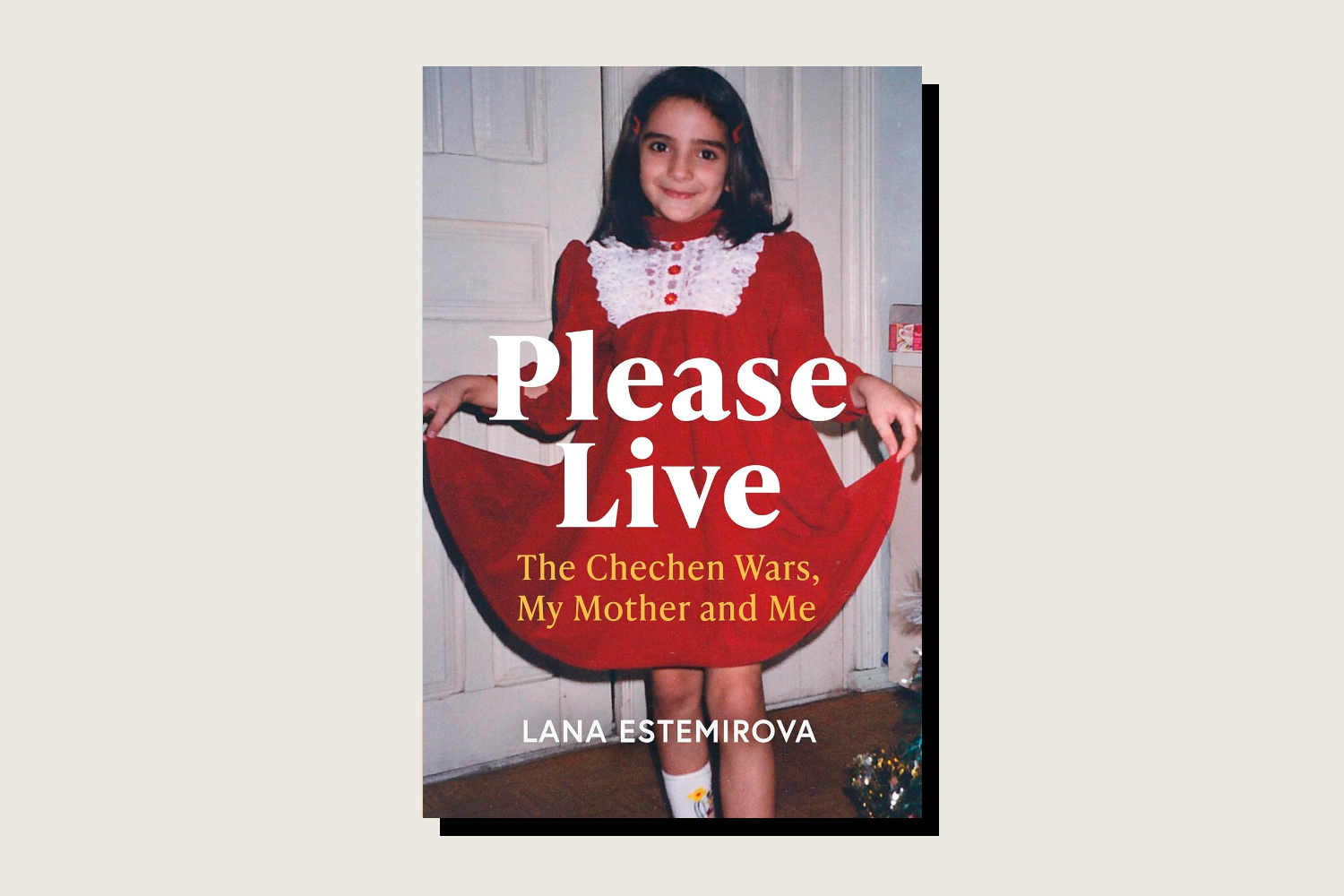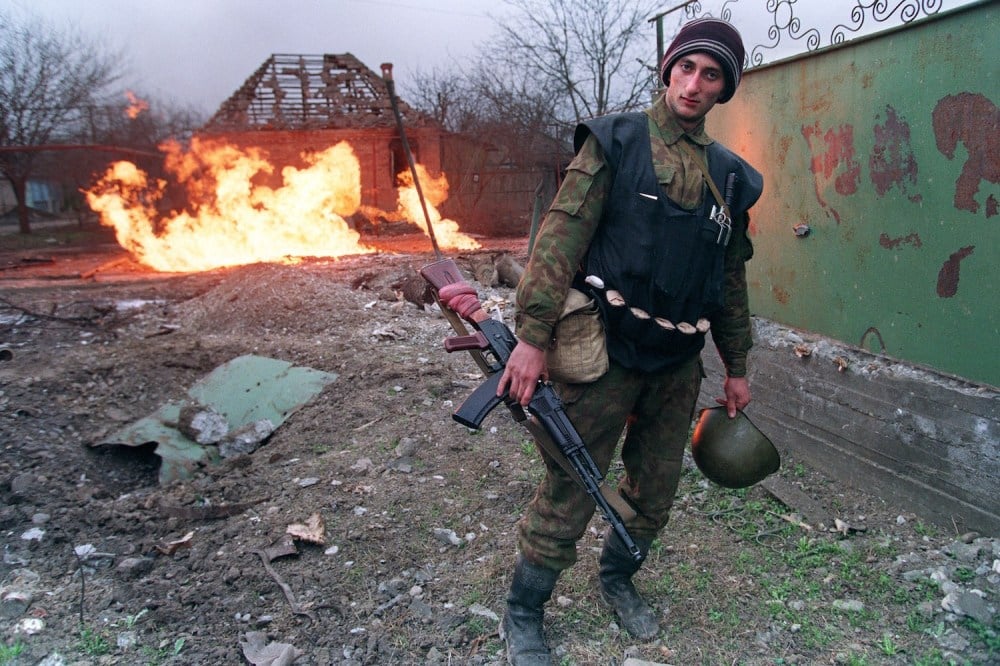The world’s attention was, for a while, on Ukraine. Then it shifted on a dime to Gaza. Now it’s Iran. The focus and the concern were all entirely justified. But why is it politicians and publics prioritize one over the other?
I was no different to anyone else, transfixed over the past few weeks by the will-he-won’t-he of Donald Trump’s brinkmanship towards Iran. Meanwhile, the world paid less attention as the wretched Palestinians continued to be fired upon by Israeli troops as they search desperately for food, while Ukrainians feel abandoned as Russia makes ever more inroads into their territory.

What of the many forgotten wars? Do we have only so much headspace, or do we not care about conflicts that have been raging for years and which barely cause us to skip a beat?
I was pondering this while reading the extraordinary memoir of Lana Estemirova, a young Chechen woman, a book that is more a tribute to her mother, Natalia, a human rights activist gunned down in 2009 and left in a ditch.
Who talks anymore about what happened in that land in the North Caucasus that was always seen by Moscow as a troublemaker? For nearly 15 years, starting with Russian President Boris Yeltsin and then with even greater ferocity under his successor, Vladimir Putin, Chechnya was pummeled to the ground. In 2003, its capital, Grozny, was declared by the United Nations to be the most destroyed city in the world. Since then, it has been rebuilt—part shabbily, part ostentatiously—and the country is relatively quiet, but only thanks to the terrible dictatorship of Ramzan Kadyrov.
And who talks about Sudan, where a war between the government and the paramilitary Rapid Support Forces has left tens of thousands dead and some 26 million people—around half of the population—facing severe food insecurity?
Or Haiti, where gangs now control 80 percent of the capital, Port-au-Prince, and despite a Kenyan-led mission of 800 police, backed by the U.N., and now only half-heartedly by the U.S., violence has continued to soar. In 2024, nearly 6,000 people were killed, an increase on the year before.
Or the Democratic Republic of the Congo, where forces backed by Rwanda have seized large swathes of territory. Over half a million people have fled the most recent fighting around the regional capital, Goma, pushing the total number of displaced in the area to 2.5 million. Or Yemen. Or the resistance of opposition militia in Myanmar, who have tentatively seized around 100 towns as they fight a military that exercises power through brute force.
Long before Trump first came to power in 2017, governments around the world had lost the will to push back hard on human rights abuses. Confidence had been damaged, perhaps destroyed, by the interventions in Iraq and Afghanistan. These so-called humanitarian interventions were seized on by Trump as he established his “America First” mantra: No more forever wars meant no more deployment of U.S. forces to remove dictators.
Trump did seem to contradict his own strictures by bombing Iran’s nuclear facilities but has made it clear that he is not interested in whether a regime is a dictatorship or not.
Which means that if you live in a state where people disappear in the night, never to be heard of again, you are truly alone.
That is the brutalized early life that Estemirova lived through. Her childhood was dominated by the two Chechen wars. The first, between 1994 and 1996, resulted from the breakup of the Soviet Union and declaration of independence by Chechen separatists. That ended in a stalemate.
On the eve of Putin taking office as prime minister, Russia launched a full-scale military operation in 1999. The pretext was a series of bombings in Russian cities, which were blamed on Chechen rebels but were attributed by some to Russian intelligence using them as a false flag, a pretext for invasion.
The conflict eventually resulted in a Russian victory and the establishment of a pro-Kremlin government under Kadyrov. As many as 200,000 people are thought to have died since the start of fighting—a huge toll on a population of just 1.5 million.
Chechens are no strangers to suffering at the hands of Moscow. In 1944, Soviet leader Joseph Stalin ordered the deportation of the entire population to Central Asia, more than 1,000 miles to the east, on the false charge of collaboration with the Nazis.
In her memoir, Estemirova writes of an early life at war: “Just before I turned two years old, she left me in the care of my grandmother and returned to Grozny where a painted sign at the city’s entrance greeted her with the words “welcome to hell.’”
Although her mother was devoted to her and did what she could to keep her safe, she put herself at huge risk by working openly to document the many human rights abuses and disappearances that took place on Kadyrov’s orders, or random killings carried out by Russian troops. Lana describes how she and Natalia were once shot at by drunken soldiers, just for fun. When her mother confronted them, they scuttled away into their barracks.
Lana was sent to different schools far away to try to give her a sense of normality. In the Urals city of Yekaterinburg, she would be mocked as a “terrorist” by Russian pupils. Back home, she saw nothing untoward about being in a classroom with no doors or windows. Inheriting her defiance from her mother, she fought one-girl rearguard action not to wear a headscarf, but eventually was forced to give in.
Instead of seeing the warnings, the murder in 2006 of her friend and courageous Russian journalist Anna Politkovskaya made Natalia Estemirova more determined to fight on. She would photograph mass graves and write about as many cases as she could, while bringing together other activists from the now-banned group Memorial.
Kadyrov became more enraged by her actions. He tried to woo her into silence, appointing her in 2008 to chair of a “human rights council.” She lasted just a few weeks. She was summoned several times to see him; each time he was boiling with rage.
By that point the world had long moved on from Chechnya—not that it ever paid it much attention. Is it inherent bias towards poor countries? Or to paraphrase Neville Chamberlain, Britain’s hapless pre-war prime minister, when talking of Nazi claims on Czechoslovakia, “a quarrel in a faraway land between people of which we know nothing.” Has social media limited our attention spans yet further? We were always selective, but our lack of interest seems to have shifted now from a struggle to cope with the plethora of cases to a deliberate refusal to become involved. Exhaustion and ambivalence have been turned into strategy.
Lana Estemirova was just 15 when her mother was kidnapped in July 2009. Bundled into a car as she walked to the bus stop on her way to work, she was driven out of town and then shot five times in the chest and head.
As it happens, my wife, the BBC journalist Lucy Ash, was the last Western correspondent to see her alive on a reporting assignment to Chechnya. I made my second and last visit to Grozny as part of a delegation of invited journalists in November 2008, where we were summoned to Kadyrov’s newly built official residence outside the city. Surrounded by henchmen, he took us on a tour of his grounds, which included his own horse-racing track, a man-made lake for jet skiing, and a personal zoo, where, he told us, he liked to unwind communing with the tigers and cheetahs.
Kadyrov is still there—and has dispatched large contingents of forces to help Putin’s war in Ukraine. The two are cut from the same cloth. Nobody was ever prosecuted for Estemirova’s murder. The investigation was a pretense. were a sham.
Natalia’s former colleagues helped Lana to move to Britain. She married, and last year had a daughter of her own, whom she has called Natasha—in memory of her mother.
A year after the murder, then-U.S. President Barack Obama hosted Dmitry Medvedev (Putin’s sham temporary stand-in as president). In front of TV cameras, they announced a “reset” of relations after what had been a “dangerous drift.” Trump is now wooing Putin again. The current generation of human rights defenders are at their mercy.
The post The Fate of the World’s Forgotten Wars appeared first on Foreign Policy.




